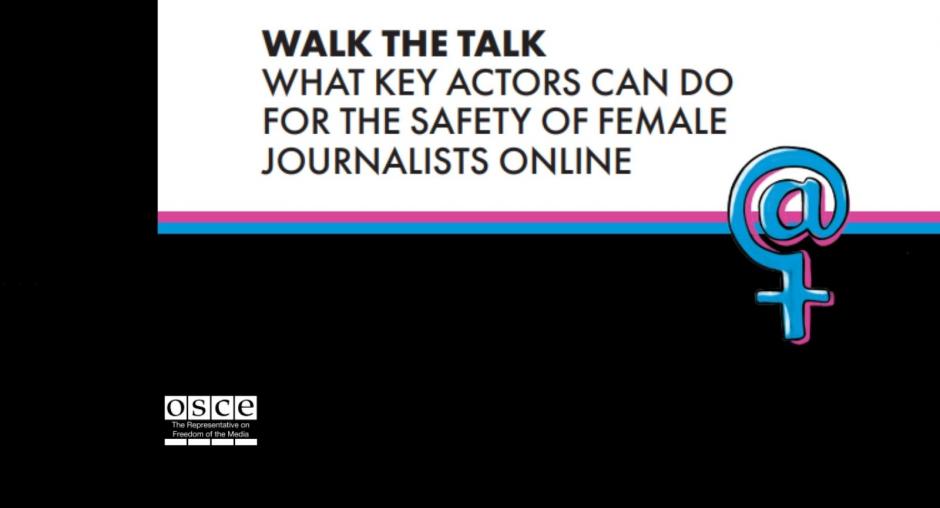Time to walk the talk: OSCE Media Freedom Office launches new Guide with concrete action proposals to safeguard online safety of female journalists

VIENNA, 2 November 2020 – The Office of the OSCE Representative on Freedom of the Media (RFoM) launched today a new Resource Guide, which contains action proposals on how to ensure the safety of female journalists online. It identifies a way forward and provides a list of useful resources and examples of existing measures and good practices.
The Resource Guide is the next step in the Safety of Female Journalists Online (#SOFJO) project, to assist State and non-State actors across the OSCE region to take real action in improving the digital safety of women journalists. The Resource Guide entails concrete suggestions for ten stakeholder groups, including the executive and legislative branches of government; the judiciary; law enforcement agencies; intergovernmental organizations; internet intermediaries; media outlets; journalists’ organizations and self-regulatory bodies; civil society organizations and educational institutions; and journalists and media workers.
"When it comes to the online safety of female journalists, there still remains an implementation gap. The Resource Guide is an important tool to provide all stakeholders with guidance for concrete actions that need to be taken – and how to implement them,” said Jürgen Heissel, Director of the Office of the OSCE RFoM, during the launch event today.
The author of the Guide, Silvia Chocarro, Head of Protection of Journalists at ARTICLE 19, said that: “Online harassment and abuse against women journalists are not part of the job. Everyone has a role to play in combating it, and States have an obligation to address it.” Hanna Stjärne, Chief Executive Officer at Sweden’s national broadcaster, stated that they handle on average 35 security issues every day, all year round, including harassment, acts of violence, and threats. “Threats against journalists are a threat against democracy and freedom of speech – the pillars of our society,” said Stjärne.
Thomas Hughes, Director of the Facebook Oversight Board, mentioned that the #SOFJO Resource Guide proposes “greater transparency and accountability by internet intermediaries regarding content moderation decisions, which is core to the design of the Facebook Oversight Board.” Lastly, Monika Hanych, Legal Counsellor at the Office of the Czech Government Agent before the European Court of Human Rights, said: “Interfering in women journalists' private spheres through threats, intimidation and harassment discourages them from covering important topics. States must protect them through effective legislation, law enforcement and the judiciary.”
See the Resource Guide here: https://www.osce.org/files/f/documents/2/9/468861.pdf
Follow #SOFJO on Twitter for the latest updates on this project.
